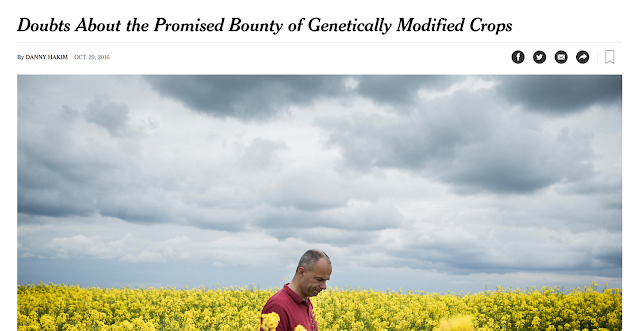Rehashing a Tired Argument

The New York Times failed again, publishing a less-than-scientific ball of bias that states genetically engineered crops fail to produce as expected. Investigative reporter Danny Hakim's opinions contrast sharply with the scholarly literature, as well as the direct experiences of the people that understand the benefits and limitations of the technologies-- farmers that use it. As it has been said, it is easy to trash a farming technology when your plow is a pencil . The author here returns to two well-refuted, ancient criticisms. First, that genetically engineered crops fail to yield, and next, that they don't cut "pesticides". These are old and familiar discussions for those of us that have studied this subject for twenty years. We could spend a lot of time reviewing the data Hakim used to reach his conclusions. But rather than point out the flaws in his highly selective, cherry-picking analysis ( which Dr. Andrew Kniss did skillfully here ), it

